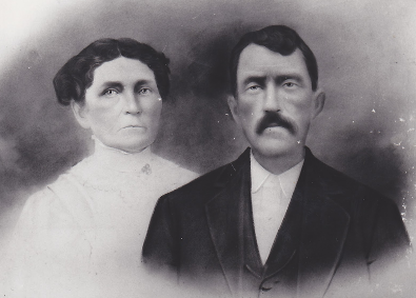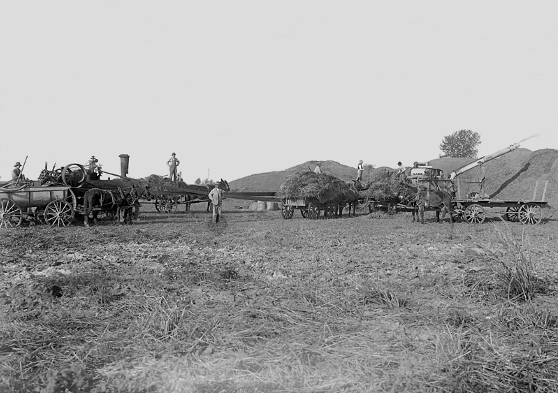 March 31, 2021 by Erica A. Morris (article in honor of International Women's Month and dedicated to my father-in-law, G. Richard Morris, on his Birthday) Many, many years ago, between the time period of the years 1880-1910 are said to have been the beginning of the Southwestern Rice Revolution in America. Although, many industrial and economic factors played a very important role in the ability to begin making these agricultural improvements, discoveries, and revolutionary way of life for the once thought to be unfarmable lands of the southeastern flatlands of Texas, Louisiana, and Arkansas; it is stated in history to be attributed to more. The hardworking, determined, ambitious, and idealistic men [and women] who pursued to overcome the challenges associated with rice farming that are at the actual heart of this industry. Which is exactly what the focus of this article is about- those brave and dedicated pioneers in agriculture. On the Morris Farm and homestead in Lonoke County, Carlisle, Arkansas, John M. Morris and his brother in law, William H. Fuller experimented with growing rice. As many successes start, so did this the same, with failed attempts. After a small but yielding crop of 5 acres of rice, Mr. Morris was encouraged and went to Louisiana to study the culture more closely of the crops grown there. He and his wife, Emma, and sons planned to plant a large crop upon his return. Sadly, John Morris was struck with heart failure while away, which was the cause of his death on March 28, 1903 at the young age of 46 years. Now, can you imagine? Especially way back when horsepower meant literally just that (or that of the more economic mules or donkeys) the devastation, on so many levels, this woman must have felt? Her husband had been on the breakthrough to solving the problems of growing rice successfully in Arkansas at the time of his death. Mr. Morris was survived by his wife, Emma, and several sons. (Honestly, being a farm wife with three young boys, i do not want to imagine it!) The widow, Emma Morris, and her sons who at that time were all under the age of 18, proceeded with her late husband's plan (on a smaller scale of 15 acres) that she did plant. Seven and one half Japan variety and two and one half Honduras. Of that crop, 10 acres of good rice was able to be successfully harvested and yielded 904 bushels. Irrigating water over 8 acres successfully and reporting of crabgrass being problematic, success was still imminent that a crop of rice had been successfully grown and harvested on the Arkansas farm. Mrs. Morris told reporters that she had her land prepared to plant 50 acres of rice the next spring and felt confident that it would receive adequate water with a 10 inch well. Emma Morris and sons, E.L., Miron G., and R.W. did indeed succeed in the rice business. In a letter to the Western Trail Journal Publishing about how they had found success since coming to Arkansas from Nebraska, even after the sudden and unexpected death of her husband, the late Mr. John M. Morris, his widow, Mrs. E. Morris wrote, “Stricken with grief, heartbroken, and discouraged, with no one to advise or direct me except my boys, I proceeded to plant the crop already planned by my husband.” Not only they proceed, but as mentioned above, they did so succeed! In fact, on that very farm in Arkansas, rice is still grown there today! That farm is still farmed, owned and operated by generation after generation of dedicated, innovative rice farmers in the Morris family (who obviously have it a whole lot better than hand sinking wells and mules lol) Yes, we have big tractors with gps and technology now. Since the days of John & Emma, what they started still lives on and thanks to great new resource conservation practices, will be around for a long time to come, good Lord willing. Now, in the year 2021, Arkansas is the #1 rice producing state in the country! Sharing this story is not just about farming and rice, although those things are wonderful, it is to spotlight a woman whose story and life was and is an inspiration. Emma C. Morris had perseverance. I know some women who hold a high standard in my book, you know who you are. Emma is one of those as well. Her story should be remembered to remind others that hard things can be done despite obstacles and hardships, that if we just give up, we will never know what successes could have been. That is what it means to persevere; to press on or keep going even during tough times. Emma Morris did just that and I hope this has been somewhat of an interesting piece of history, education, encouragement, and spotlighted a woman who deserves to be remembered in history. P.S. My wife Donna Losak Shaner is a great niece (by marriage) to Anna Morris. The photo below is an image from the farm in Carlisle, Arkansas in Lonoke County.
0 Comments
Leave a Reply. |
AuthorSteve Shaner is a professional story teller that delights in traveling to meet new and old friends. He can be contacted at [email protected]. Archives
April 2023
Categories |

 RSS Feed
RSS Feed